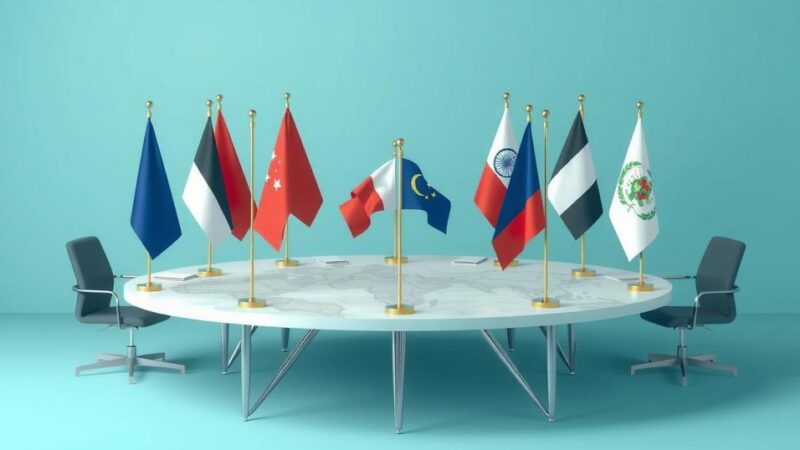The security situation in South Sudan is increasingly unstable, with rising tensions between SPLM and SPLM-IO leading to fears of renewed civil war. A recent militia seizure of military barracks has resulted in civilian bombardments and mass displacement. Political actions against SPLM-IO leadership invite further conflict, while the UN stresses the urgency for peace efforts to preserve the 2018 Revitalized Peace Agreement, amidst a worsening humanitarian crisis affecting millions.
The security landscape in South Sudan has sharply declined, driven by escalating discord between the Sudan People’s Liberation Movement (SPLM), led by President Salva Kiir Mayardit, and the Sudan People’s Liberation Movement in Opposition (SPLM-IO), under First Vice President Riek Machar. This rising tension poses a grave risk of the country reverting to civil war.
On March 4, the youth militia known as the White Army seized control of barracks formerly held by the South Sudan People’s Defense Forces (SSPDF). In response, civilian populations in the Upper Nile region were subjected to aerial bombardments, reportedly utilizing incendiary weapons. These attacks have resulted in numerous fatalities, severe injuries, and the displacement of approximately 100,000 individuals.
Concerns regarding escalating violence in the Upper Nile region are heightened by reports indicating further mobilization among both the White Army and SSPDF, including the troubling recruitment of minors.
The conflict intensified on March 24 in the capital, Juba, where clashes erupted between the SSPDF and forces aligned with SPLM-IO. Such confrontations instill fear that the conflict may broaden, reminiscent of the civil wars of 2013 and 2016. The UN has cautioned that the situation jeopardizes the 2018 Revitalized Peace Agreement.
Politically, numerous military and civilian officials from SPLM-IO have faced removal from their roles, detention, or have gone into hiding, including reports of Riek Machar being placed under house arrest on March 26. Nicholas Haysom, head of the UN peacekeeping mission in South Sudan, expressed concerns, stating, “South Sudan is teetering on the edge of a relapse into civil war.”
The UN is actively involved in diplomatic initiatives with international and regional partners to avert a potential war that would devastate both South Sudan and its neighboring regions. Collaborative efforts from UNMISS, the African Union, and other entities aim to uphold the gains achieved since the peace treaty was enacted, contingent upon the parties’ willingness to engage in reconciliation.
The UN Secretary-General reiterated the urgency for peace, stating, “Now more than ever, the leaders of South Sudan must hear a clear, unified and resounding message: Put down the weapons. Put all the people of South Sudan first.”
South Sudan achieved its independence from Sudan in 2011, concluding a prolonged conflict. However, internal strife led to civil war just two years later, driven by competing factions under President Kiir and Vice President Machar. The resulting conflict triggered mass violence and humanitarian crises, with the 2018 peace treaty offering hope that has diminished amid stalled implementations and political discord. Over nine million individuals now require humanitarian aid, exacerbated by a new influx of 1.1 million refugees escaping the Sudanese conflict. With economic indicators such as inflation skyrocketing and oil revenues plummeting, the nation confronts a potential financial catastrophe.
The United Nations Mission in South Sudan (UNMISS) was launched in 2011 to facilitate the establishment of peace and security. Its current mission encompasses strategies aimed at preventing the resurgence of civil war, fostering self-sufficiency, and addressing critical factors needed for sustainable governance and electoral integrity.
The ongoing crisis in South Sudan necessitates immediate and unified international intervention to prevent further deterioration into civil war. The combination of escalating violence, political instability, and humanitarian need underscores the urgency for a collective return to the terms laid out in the Revitalized Peace Agreement. Without timely action from both national leaders and their global partners, South Sudan risks devastating consequences that could reverberate throughout the region.
Original Source: peacekeeping.un.org






